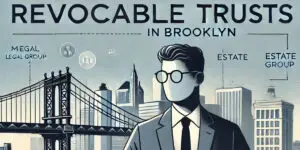Domain Tax
In the United States, the primary domain charge is the government home assessment. A couple of states additionally have their own state domain charges. In the two cases, the expense depends on the worth of the domain. That worth is the entirety of the property left by the perished individual, barring any property passed on to an expense excluded noble cause or to an enduring U.S. resident companion. By far most of homes don’t owe home expenses in light of the fact that the central government and most state governments gather domain burdens just from bequests worth a large number of dollars.
Government Estate Tax
For passings in 2021, the individual government domain charge exclusion is $11.7 million. Hitched couples can share their joined $23.4 exception in any capacity allows them to keep away from the most expense. All in all, any individual can part with or leave $11.7 million in available gifts without paying any government domain charge. Furthermore, many gifts are not available, including property given or left to a life partner or to a duty excluded noble cause. The government charge rate is 18%-40% for the sum over the exception. The first $10,000 over the exception is charged at 18%. This rate increments gradually and straightens out at 40% for sums more noteworthy than $1,000,000.
Legacy Tax
A couple of states force legacy charges, instead of home expenses. (Just Maryland has both, and there is no government legacy charge.) People who acquire property from somebody who lives in one of these states might be at risk for legacy charge. It doesn’t make any difference which express the inheritor lives in. For instance, an Illinois inhabitant who acquires from somebody who lived in New Jersey may owe New Jersey legacy charge. Not at all like home expenses, legacy charge rates don’t rely upon the size of the entire bequest. All things considered, inheritors are burdened dependent on their relationship to the individual they’re acquiring from and the size of the gifts they get. Subsequently, inheritors might owe state legacy charge regardless of whether they acquire a somewhat unassuming measure of property.
Enduring mates (and in certain states, same-sex accomplices who have enrolled with the state) by and large compensation nothing by any means. Magnanimous recipients may likewise be absolved from the assessment. Youngsters are either absolved from the duty or pay low rates. For instance, New Jersey doesn’t burden cash passed on to an enduring mate or youngsters, however kin should pay 11% to 16% of what they acquire on sums more than $25,000.
1. Am I needed to document a bequest government form?
In the event that the decedent is a U.S. resident or inhabitant and decedent’s passing happened in 2016, a home expense (Form 706) should be documented if the gross home of the decedent, expanded by the decedent’s changed available gifts and explicit gift charge exception, is esteemed at more than the recording edge for the extended period of the decedent’s demise.
2. How would I choose conveyability of the Deceased Spousal Unused Exclusion (DSUE) add up to help the enduring companion?
To choose transportability of the decedent’s unused avoidance sum (expired spousal unused rejection (DSUE) sum) to serve the enduring mate, the domain’s delegate should document a bequest expense (Form 706) and the return should be recorded ideal.
3. In the event that I missed the due date for documenting the domain expense form, would i be able to get an expansion of time to choose conveyability?
On the off chance that the domain agent didn’t document a bequest assessment form inside nine months after the decedent’s date of death, or inside fifteen months of the decedent’s date of death (if a multi month augmentation of time for recording the home assessment form had been gotten), the accessibility of an expansion of time to choose convenientce of the DSUE sum relies upon whether the home has a recording necessity, in view of the recording limit.
4. How does the essential rejection sum apply in 2026 on the off chance that I make huge gifts before 2026?
People exploiting the expanded gift charge prohibition sum in actuality from 2018 to 2025 won’t be antagonistically affected after 2025 when the avoidance sum is planned to drop to pre-2018 levels.
5. When would i be able to expect an Estate Tax Closing Letter? (refreshed June 8, 2021)
Bequest charge shutting letters may be given upon demand by the citizen or citizen’s delegate. In view of current limitations because of the proclaimed National Emergency we will just acknowledge a solicitation for a home expense shutting letter by copy.
6. Is there an option in contrast to the Estate Tax Closing Letter?
Indeed. Notice 2017-12 clarifies that a record gave by the Internal Revenue Service (IRS) can be utilized in lieu of Letter 627, Estate Tax Closing Letter. The Transcript Delivery Service (TDS), which gives approved experts the capacity to view and print moment account records for bequest expense forms, is presently accessible on IRS.gov.
7. How would I make an electronic installment?
There are two separate frameworks for making an electronic installment of domain or gift charge which are the Electronic Federal Tax Payment System (EFTPS) and Same-Day Wire Payment.
8. What is remembered for the Estate?
The Gross Estate of the decedent comprises of a bookkeeping of all that you possess or have certain interests in at the date of death (Refer to Form 706). The honest evaluation of these things is utilized, not really what you paid for them for sure their qualities were the point at which you gained them.
9. Imagine a scenario where I don’t have everything prepared for documenting by the due date.
The bequest’s delegate might demand an augmentation of time to petition for as long as a half year from the due date of the return.
10. Who would it be a good idea for me to recruit to address me and get ready and record the return?
The Internal Revenue Service can’t make proposals about explicit people, yet there are a few variables to consider.
11. Imagine a scenario in which I can’t help contradicting the assessment recommendations.
You have many rights and roads of allure on the off chance that you can’t help contradicting any recommendations made by the IRS. See Publication 1 and Publication 5 for a clarification of these alternatives.
Find support
In the event that you might want to study the need of domain arranging, any of our home arranging lawyers would be glad to help you.









